Hurricane Milton
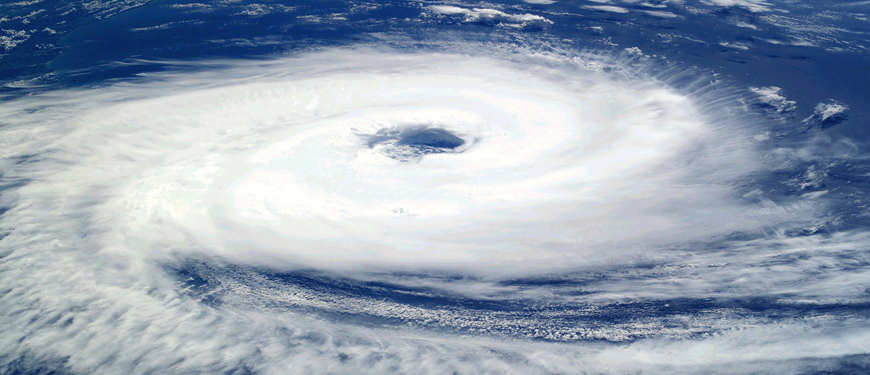
North Central Health District is monitoring and responding to Hurricane Milton as it heads towards the U.S.
As of Oct. 9 at 8 a.m., Milton is a Category 4 hurricane with winds of 155 mph. Hurricane Milton is forecast to make impact the west coast of Florida as a major hurricane by Wednesday evening, with tropical storm conditions appearing in NE Florida an SE Georgia. Impacts to central Georgia are predicted to be minimal:
- Gusty winds up to 25 mph
- Rainfall up to 1 inch
NCHD encourages all residents to prepare for hurricanes:
- Have a communication plan in place – include one contact that will not be in the storm.
- Have supplies for each family member – find a checklist at NCHD52.org/prepare.
- Have a way to receive emergency updates – listen to local media and officials, register for your county EMA’s alert system, use a NOAA radio or install a phone app that provides updates.
- Secure all outdoor items that may be blown away by severe winds.
- Evacuate if directed by authorities – follow instructions to ensure safety.
- Prepare to shelter in place if directed – find a safe room in your home away from windows and doors; make sure to bring you emergency supplies.
Hurricane Preparedness Information
Before the Storm
- Have an emergency plan and and a supply kit.
- Secure all outdoor furniture, garbage cans, decorations or anything that may be lifted by high winds.
- Plan to shelter outdoor pets indoors.
- Know your area’s flood risk.
- Have a reliable way of receiving local weather updates.
- Check on disabled or elderly family members or neighbors and see if they need help preparing or need a place to shelter.
During the Storm
- Stay indoors and away from glass windows or doors.
- Shelter in a central room, hallway or closet on the bottom floor.
- If flooding occurs, take shelter on a higher floor.
- Evacuate if directed to by authorities – follow instructions to ensure safety.
- Listen to local news or a NOAA weather radio to receive situational updates.
After the Storm
- Do not return to evacuated areas until notified by authorities.
- Stay away from flooded areas – water may be electrified or contaminated.
- Avoid downed power lines and report them to the local power company.
- Check on elderly or disabled family and neighbors to ensure they are safe after the storm.
Additional Hurricane Resources
Weather Updates
National Hurricane Center Updates
NOAA NCHD County Weather Alerts
Weather Updates & Social Media
Evacuee Shelter Information
Local Red Cross Shelters
The following shelters for Florida evacuees are expected to open Tuesday, Oct. 8, at 5 p.m.
- North Central Health District
- Bibb County – South Bibb Rec Center – 7035 Houston Rd, Macon, GA 31216
- Bibb County – Delores A. Brooks Rec Center – 3326 Ocmulgee E Blvd, Macon, GA 31217
- Houston County – CGTC Larry Walker Arena – 80 Cohen Walker Dr. Warner Robins, GA 31088
- Monroe County – Maynard Baptist Church – 1195 Juliette Rd, Forsyth, GA 31029
- Other Counties
- Crisp County – Cordele First Church – 302 E 12th Ave, Cordele, GA 31015
- Butts County – Jackson First Baptist Church – 1227 W 3rd Street, Jackson, GA 30233
- Camden County – PSA Rec Center – 1050 Wildcat Dr. Kingsland, GA 31548
- Muscogee County – Frank D. Chester Rec Center – 1441 Benning Dr. Columbus, GA 31903
To see all Red Cross Shelter locations, visit redcross.org/shelter.
Additional Shelter Opportunities
Georgia State parks are open for RVs and Campers, so please visit gastateparks.org/Alerts for more information. Plan your evacuation routes accordingly, and stay safe! For more information, visit gema.georgia.gov.
If you need a safe place, the Atlanta Motor Speedway is opening its area for evacuees ahead of Hurricane Milton. Stay safe, and click here for more details
Pet Shelter Information
- No shelter information at this time.
This information will be updated as shelters open.
Hotel/Motel Availability
Anyone visiting Georgia to avoid Hurricane Ian can visit www.exploregeorgia.org or expedia.com/georiga to check the availability of hotels/motels in their area.
Donations
Many people are interested in donating things like food, clothing and other items to help evacuees. While the thought is appreciated, it’s important to note, shelters can NOT accept home-cooked goods or other pre-cooked food delivered by third parties (this does not include deliveries placed at restaurants and delivered by restaurant staff). While this may sound harsh, this rule is in place to keep visiting evacuees safe from foodborne illnesses like norovirus, Salmonella, E. Coli and more.
Evacuees are already away from home and in a stressful situation, and illness can make an evacuation even worse. The best way to provide donations to evacuees is with gift cards to grocery stores and other general retailers. This will allow local Emergency Management Agencies to purchase exactly what is needed to support individual needs.
You can drop off your donations at:
- No donation locations at this time.
Volunteering
The Central Georgia Medical Reserve Corps is recruiting practicing, retired, or otherwise employed medical, nursing, allied health, dental, public health, mental health and veterinary medicine volunteers, as well as non-health care volunteers wishing to serve in specific support roles. To apply online, visit SERVGA, the online website for volunteer registration for the state of Georgia. Volunteers should follow the instructions on the site, making sure to choose the Central Georgia Medical Reserve Corps under the list of volunteer organizations.
Independent Shelter Guidelines
Many residents across the district may wish to provide cooked meals to evacuees on the road or at independent shelters. While we want evacuees to be fed, we also want them to be safe. The safest way to provide food for evacuees is by donating gift cards at the designated drop-off locations. North Central Health District urges any individuals and organizations providing cooked meals to follow proper handwashing, food preparation and food storage procedures to avoid the spread of foodborne illnesses like Salmonella, E. coli and norovirus. Following these guidelines can help create a safe environment for evacuees during their stay.
- Wash hands frequently. Wash hands for 20 seconds with soap and water before, during and after preparing food.
- Always wash your hands after coughing or sneezing, using the restroom, or disposing trash.
- Avoid barehanded contact with ready-to-eat foods: fresh fruits, vegetables or precooked/prepackaged foods.
- Separate raw meats, seafood, poultry and eggs from all other foods.
- If you are sick, avoid helping with food preparation.
- Use separate cutting boards and plates for raw meat, seafood and poultry.
- Use a food thermometer to make sure foods reach internal temperatures high enough to kill germs that can lead to sickness:
- 145°F for cuts of beef, pork, lamb or veal.
- 160°F for ground beef or pork.
- 165°F for poultry, including ground turkey or chicken.
- 165°F for casseroles or leftovers.
- When serving foods, always use gloves to avoid barehanded contact.
- Keep pets and other animals out of the kitchen and away from other food preparation areas.
- While serving, hot food items should be kept at 135°F or higher and cold foods items should be kept at 41°F or less.
- Food products not being served immediately should be kept refrigerated. All food left out at room temperature should be disposed of after 2 hours.
- Limit food donations from outside sources – it is best to only accept prepackaged items.
- Use bottled water if the shelter is connected to well water.
- Makes sure there is enough space to collect and store trash. Trash may not be collected on the regular schedule if storms impact routes.
- Keep medication and chemicals out of children’s reach at all times.
Download or print this information.
Additional Information:
Food & Water Safety
Food and water may not be safe to eat or drink during and after an emergency, depending on how the storm impacts the surrounding area. Use the following information to help prevent foodborne and waterborne illnesses.
Food
- Foodborne illnesses are a risk from food that is not stored in proper temperature during power outages or from food contaminated by flood water.
- If the power goes out, keep refridgerator and freezer doors closed as much as possible to maintain the cold temperature.
- A closed refridgerator will keep food cold for around 4 hours.
- A full, closed freezer will keep cold for 48 hours; a half-full one for 24 hours.
- When power is resorted, make sure food is safe before consuming.
- You cannot rely on the look or smell of items to determine if they are safe.
- If a freezer thermometer reads 40° F or below, food is safe and may be refrozen.
- Dispose of perishable foods (espcially meats, poultry, fish, eggs or leftovers) that have been above 40° F for two hours or more.
- Do not eat any food that comes in contact with flood water.
- When it comes to food safety: if in doubt, throw it out.
FDA – Food Safety During Power Outages
Water
- Storms can knock out reliable sources of water, so it’s important to keep saftey in mind to prevent waterborne illnes.
- When possible, use bottled water that has not been exposed to flood water.
- If you do not have bottled water, boil water to make it safe.
- Listen to local alerts for boil water advisories in your area.
Additional Information
Traffic Information
Call 511 or visit 511ga.org to receive the latest travel information about Georgia roads including notifications of road conditions, closures and contraflow. You can receive direct alerts by signing up for My511GA alerts.


 Contact Us
Contact Us Locations
Locations Job Openings at North Central Health District
Job Openings at North Central Health District Internships
Internships Board of Health
Board of Health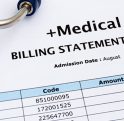 Cost and Insurance
Cost and Insurance Privacy Policy
Privacy Policy Teens & Adults
Teens & Adults For Children
For Children Other Programs
Other Programs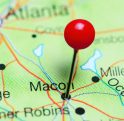 County Environmental Health Offices
County Environmental Health Offices Chemical Hazards
Chemical Hazards Tourist Accommodations
Tourist Accommodations Food Service
Food Service Rabies Control
Rabies Control Lead Poisoning Prevention
Lead Poisoning Prevention Body Art
Body Art Land Use
Land Use Swimming Pool Program
Swimming Pool Program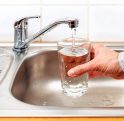 Water Testing for Private Wells
Water Testing for Private Wells Environmental Health Complaints
Environmental Health Complaints Georgia Food Recall Alerts
Georgia Food Recall Alerts Personal & Family Preparedness
Personal & Family Preparedness Emergency Preparedness for Functional & Access Needs
Emergency Preparedness for Functional & Access Needs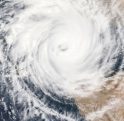 Severe Weather Preparedness
Severe Weather Preparedness Emergency Preparedness Training
Emergency Preparedness Training Medical Reserve Corps
Medical Reserve Corps Regional Healthcare Coalitions
Regional Healthcare Coalitions Strategic National Stockpile/Medical Countermeasures
Strategic National Stockpile/Medical Countermeasures